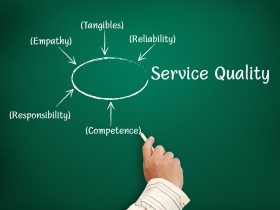Electrical cable: we don’t often think about it, but it plays a vital role in our homes and workplaces. There are many kinds of cable used in industry today, and electrical cable suppliers are vital to the installation of electricity across the country.

Building Sites
Electrical cable is not just vital to the buildings we use. To begin with, electrical cable is important to the building sites and to the construction industry. Electricity powers a lot of the construction machinery that we use today, so on-site cabling is needed provide that power. On-site lighting is also very important for safety and for security reasons. The cabling used here needs to be robust as well as flexible and able to supply power to parts of the site that are had to reach. It also needs to be tough enough to withstand outdoor use in extreme weather conditions.
Power Cables
Cable used for industrial purposes has to carry more power than cable used for domestic purposes and so has to be well made and durable. Sometimes twisted or braided cables are used. In these kind of cables, thinner wires are twisted together to form thicker conduits, providing more flexibility than solid cables of the same thickness. Flexible cables are usually coated in PVC but can be coated in rubber for environments which are very cold, very hot or very damp.
Industrial cables often need a different coating than domestic cabling or that meant for light industrial use. Specialist coatings include steel wired cable, which is the standard for mains power distribution in industry and can be used indoors, outdoors or even underground. This cabling is tough and can be embedded in concrete during a building’s construction. Fire-resistant cabling is often used in fire alarms and emergency lighting. This kind of cable is triple-coated and resistant to fire, toxic fumes and smoke.
Data Cabling
In today’s buildings, computer cables are also vital, and a good electrical supplier will be able to provide a range of data network cabling, as well as telecommunications cabling and cabling suitable for televisions, satellite installation, alarms and telephones. Even the doorbells we use have their own type of cabling. Sometimes cables need to be multi-purpose and multicore – for example, those used to control conveyor belts or other sorts of computerised light industry.
Of course, electrical cable suppliers don’t just supply cable. Different kinds of buildings require different kinds of conduit to keep the cable secure, safe and firmly in place, and trunking to house the cable. A good supplier will stock fuses, switches, programmers and timers, to name just a few of the pieces of equipment needed to make the electrical and data supply to your building efficient and safe.
You don’t often see the cables that we use. They can be concealed in walls, the floor, the ceiling or even the skirting board or the dado rail. But all you need to do is switch on the light – or ring the doorbell – to know that they are there.
























